Gravel or semi-rigid mountain bike: which bike to choose?
In this Article
Posted on March 27, 2022
At The Cyclist House we often joke by saying that the Gravel bikes are only Old-School mountain bikes. So we say to ourselves, it can't be so simple! We decide to take a look at the latest geometries, tire widths and technologies that have appeared in the world of the Gravel. Result: our first impression is not so wrong ...
So, if the Gravel bikes are indeed a small evolution of mountain biking, then why not choose a modern mountain bike? Is a semi-rigid ATV from Cross-Country Léger is the ideal Gravel's bike? Or do the Gravels really fill a void on the market that the progression of mountain biking has left vacant?

Before answering these questions, let's go directly to the heart of the problem by comparing their characteristics:
Gravel Bike vs. Semi-rigid mountain bike: comparison
| Gravel bike | Semi-rigid mountain bike | |
| Hanger | Race type (round) | Right |
| Weight | 7.5-10kg | 9-11.5kg |
| Transmission | Monoplateau 40-46T with cassette 10-42T at 10-52T, or road bike transmission | Monoplateau 30-36T with cassette 10-50T at 10-52t |
| Suspension | Rarely; 30-40mm travel fork | Display fork 100-120mm; Rear suspension 90-120mm in some cases |
| Tire width | 36-45mm | 53-61mm |
The first and most notable of the differences between the two types of bikes is of course the hanger. The most striking trait that separates the Gravel bikes from Cyclo-Cross mountain biking is the handlebars. Gravels are normally used at higher speeds on smoother roads and longer distances. Gravel bikes have a round handlebars, like road bikes, while mountain bikings have a straight handlebars. The opposite also exists, but it is quite rare.
Compared to the wide intake of the right handlebar of mountain biking, the position of the body with a round handlebars reduces the resistance to the wind. Also, the number of possible sockets for a mountain bike is quite reduced, while a round handlebar offers multiple handles, thus allowing position changes on long journeys. The goal is to favor the efficiency of pedaling. On the contrary, the cyclist's position on a mountain bike aims to optimize maneuverability: the front wheel is slightly raised and the weight is distributed to the rear to facilitate the passage over obstacles.
Tire clearance / fork head
Gravel bikes can be equipped with wider tires than road and cyclo-cross bikes, generally 38-45 mm. Some models are now capable of mounting tires of 50 mm.

Large tires with more volume improve comfort and traction. Gravel's largest tires are always narrower than most mountain bike tires. The majority of cyclo -cross mountain biking are designed to be equipped with tires of width between 53 and 61mm (2.1 and 2.4 inch) - the 50mm gravel tires measure approximately 1.97 inch. The mountain bike tires are heavier and drive slower, but offer more comfort and traction than Gravel tires which, as we have said, favor speed.

Transmission
Faced with the challenge of being able to face all types of land, the mountain biking industry has chosen to specialize in the choice of speeds. In 2022, it is difficult to buy a high -end mountain bike equipped with a front derailleur. Likewise, the monoplateau present on most mountain bikes assume that you are looking to conquer incredibly steep land and low -speed furniture, not to pedal in the middle of a group of cyclists. You can certainly add a larger tray to a mountain bike, but you will quickly limit its ability to excel in its planned use.
In general, Gravel bikes will have "more difficult" speed reports, again to allow faster speeds. Mountain bikes will have relatively "easier" speed reports for steep and technical off -road climbs. Gravel and mountain bikes both have limitations in terms of maximum speed.
The speeds of mountain bikes can be desirable for Gravel lovers who need easier speeds for difficult climbs, to drive with heavy equipment or for slow and technical trails of Gravel and Singletrack.
Suspension, control and comfort
In general, it is believed that the suspension is the line that differentiates the Gravel and the VTTS bikes. Modern mountain bikes rarely offer less than 100 mm of travel, while 50 mm are considered enormous for the Gravel.

It is clear that suspension is a good thing when you are on uneven ground. It reduces the impact on your body and makes a huge difference by helping to control the wheels - which means more traction and the capacity to hold the desired line. The problem with the suspension is that it adds weight, complexity and cost to cycling. All this is an interesting compromise if you mainly drive in all-terrain, but it becomes an obvious nuisance when it is an unnecessary feature. A mountain bike -hung fork easily adds a kilogram compared to a common rigid alternative. Even in the best of cases, a fork with low travel still adds 900 grams, without mentioning the associated additional cost.

The complexity comes from the fact that the geometry must be designed according to the additional height of the telescopic fork. It is also complex to prevent the suspension from absorbing the cyclist's energy on a smooth terrain, which is often managed by a manual locking switch. It is also necessary to take into account the addition of a larger number of mobile components on the bicycle, which means more places where things can go wrong and require maintenance.
The suspension is only a factor influencing control and comfort. The highest average speeds and the less damaged terrain provided for the Gravel also allow you to use thinner and crampt tires that offer reduced bearing resistance, better aerodynamics and lower weight.
Speed and efficiency
It should now be clear that a Gravel bike has the upper hand over the smooth surfaces, whether paved or gravel. The low parts of the handlebars offer a more aerodynamic profile. The narrower tires offer less rolling resistance. And the harder gear passage is better for high speeds.
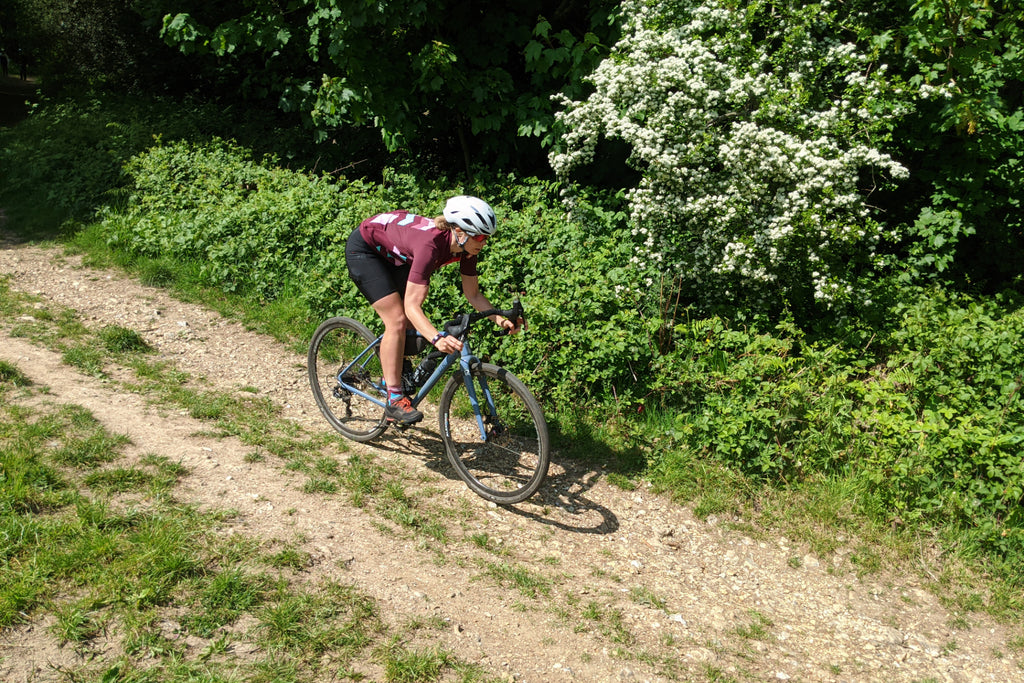
The mountain bikes are more agile and faster than the Gravel on real mountain biking fields, such as the technical trails with a single track. On the other hand, it will always be easier to follow the pace of a rapid group hike on a Gravel bike, if only because a Gravel is often lighter than a comparable mountain bike.

Gravel or mountain bike: how to choose?
What does your local cycle land look like? What type of roads or tracks do you go through regularly? Let's say you like to explore ground and gravel paths. You may have to travel several kilometers of tarmac roads across the city before arriving in the right places. In this case, a gravel bike that combines efficiency on bitumen and pleasure on gravel is ideal.
If you dream of venturing into poorly maintained jeep roads or on rocky and root singles, a cyclo-cross mountain bike may be better. It will allow you to explore the worst land you may meet.
Conclusion
In summary, a mountain bike is perfectly suited on mountain fields. Gravel bikes are in their element on unpaved and poorly maintained roads where your average speed is closer to that of a driving on the asphalt.
In the end, having a choice is a wonderful thing. Choose what you want, how and where you want to ride. Rolling on any type of bike is always the right answer.


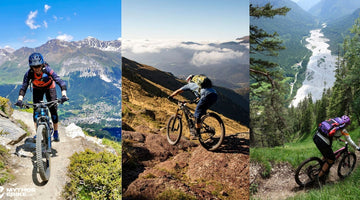
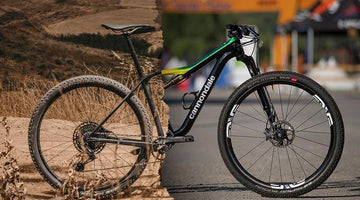


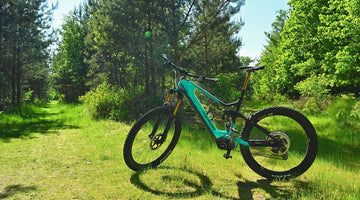
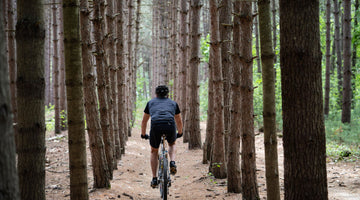
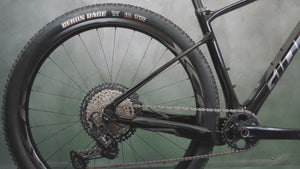
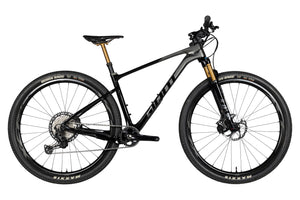
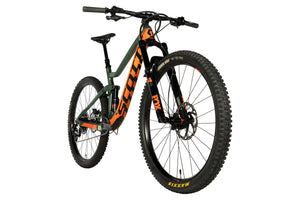
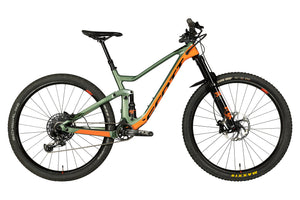
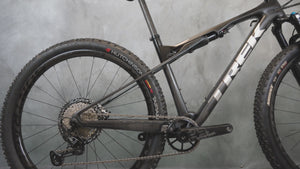
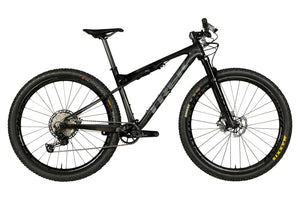
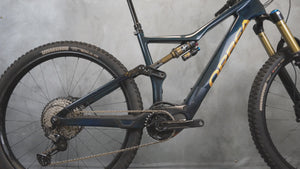
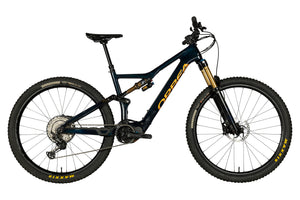
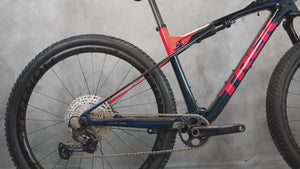
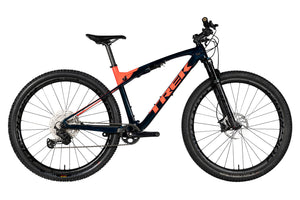
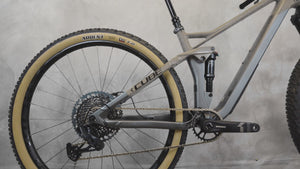
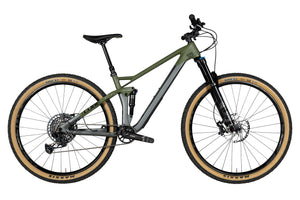
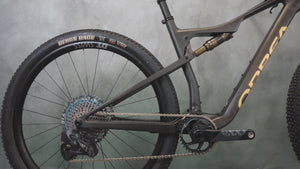
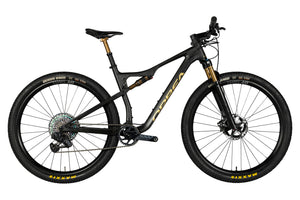
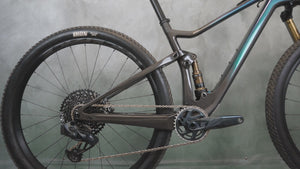
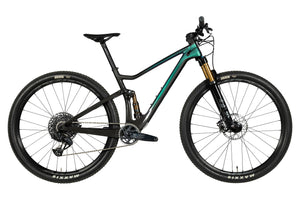
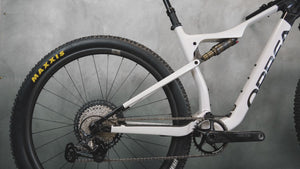
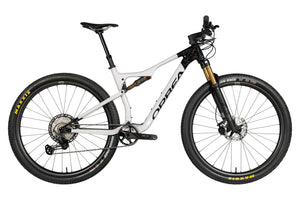
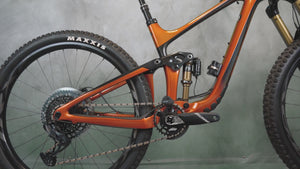
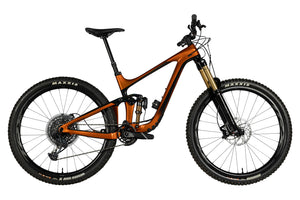
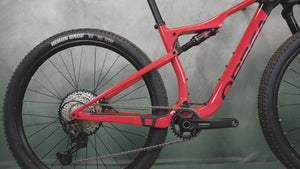
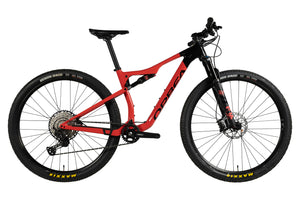
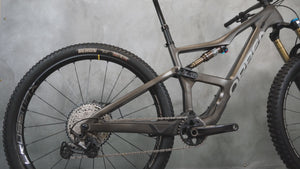
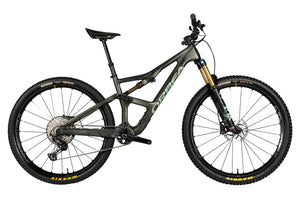
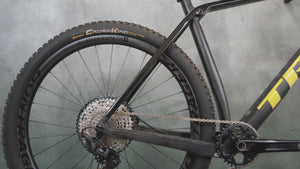
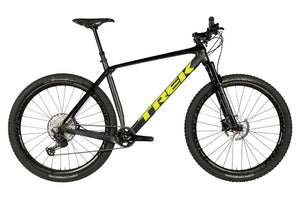
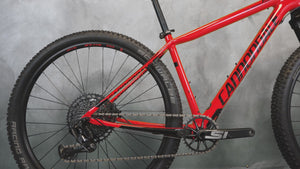
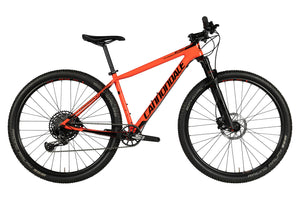
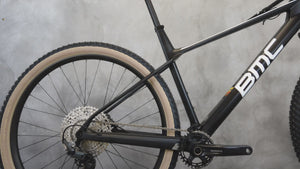
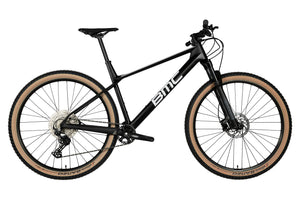
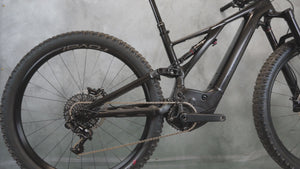
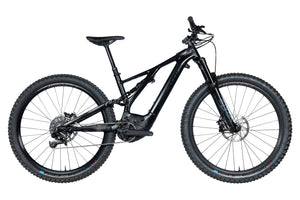
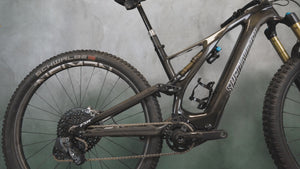
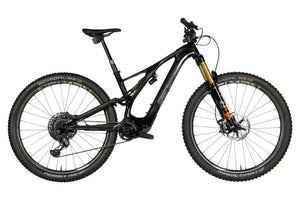
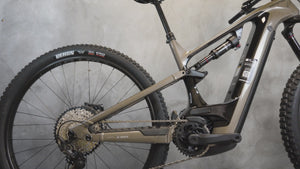
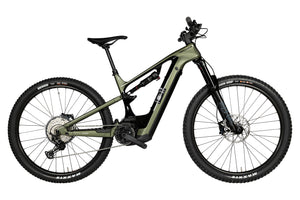
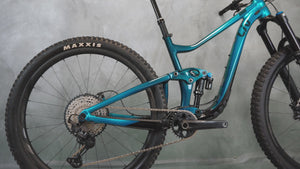
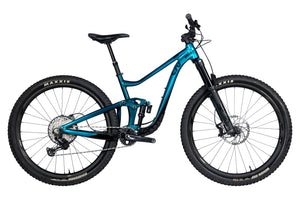
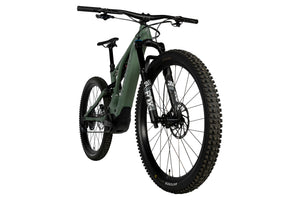
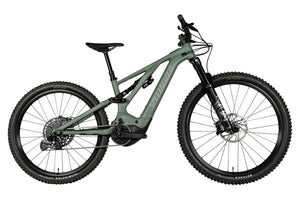
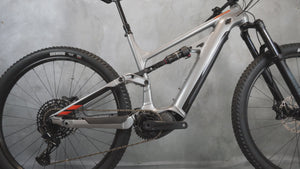
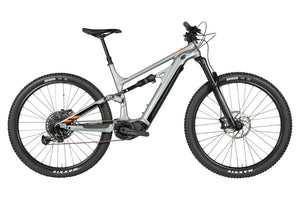
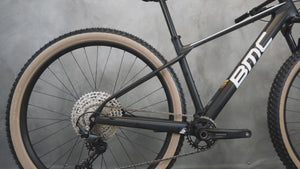
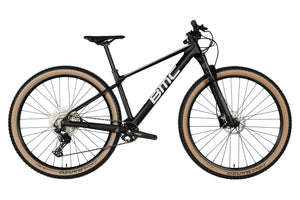
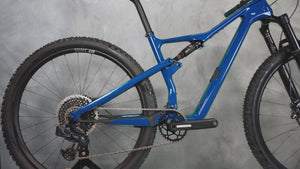
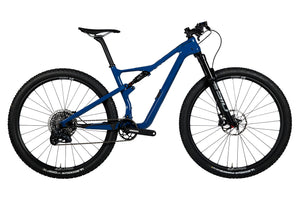
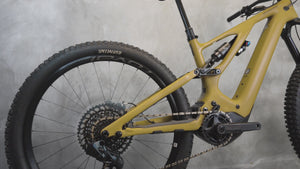
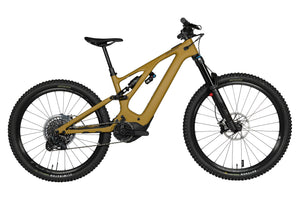
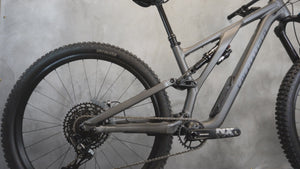
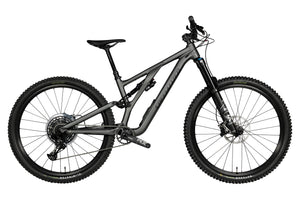
2 comments
Bonjour ! Le Singletrack est un type de sentier de VTT plutôt étroit dont la largeur est approximativement celle du vélo. Ce type de sentier est souvent lisse et fluide, mais il peut également présenter des sections techniques avec des rochers ou des racines d’arbre.
Singletrack ça veut dire quoi ? J’ai pas compris.